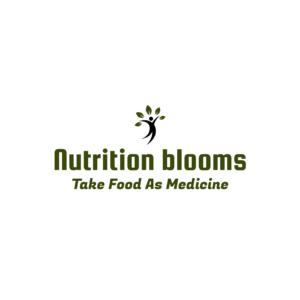Introduction:
In order to maintain life and promote good health over the entire lifespan of an individual, proper nutrition is essential. From the earliest stages of infancy to the developed years of maturity, people experience substantial physiological changes that call for different dietary needs. The purpose of this article is to compare and contrast the nutritional needs of infants and adults, emphasizing the distinct needs of each group and the vital role that nutrition plays in their general health, development, and growth.

I. Young Children: A. Macronutrients:
1. Protein: Compared to adults, infants need a higher amount of protein in their diets. Proteins are essential for the quick development and growth of muscles, organs, and tissues in the early phases of existence.
2. Fats: Good fats, particularly necessary fatty acids like omega-3 and omega-6, are critical for a baby’s developing brain. The ideal fat balance found in breast milk, an infant’s preferred food source, provides the nutrients required for cognitive development.
3. Carbohydrates: An infant’s main energy source is carbohydrates. Formula and breast milk provide the essential carbohydrates needed to meet the high energy needs of development and growth.
B. Tiny nutrition:
1. Vitamins: Certain vitamins are needed by infants, including vitamin D for the formation of bones and vitamin K for blood clotting. These vitamins are naturally found in breast milk, although, depending on variables like sun exposure, supplementation could be advised.
2. Minerals: Sufficient levels of minerals such as calcium and iron are essential for a baby’s development. Calcium is necessary for the development of bones and the health of the skeleton, whereas iron is necessary to avoid anemia.
II. Grownups:
A. Fats and Nutrients:
1. Protein: Although adults still need protein, their needs are often lower than those of infants. Protein is necessary for the adult body to heal damaged tissues, maintain muscle mass, and promote immunological function.
2. Fats: Since healthy fats support hormone production, nutrient absorption, and cardiovascular health, adults should concentrate on preserving a balance of these fats. For instance, omega-3 fatty acids help to maintain heart function and reduce inflammation.
3. Carbohydrates: For adults, the kind and amount of carbohydrates are more important, with a focus on complex carbs that offer long-lasting energy. Maintaining a balanced carbohydrate intake promotes overall metabolic health and aids in blood sugar regulation.
B. Tiny nutrition:
1. Vitamins: Adults need a wide variety of vitamins for different body processes. For example, vitamin C is essential for a healthy immune system, while B vitamins help in energy metabolism. Adults, as opposed to newborns, typically get these vitamins from a range of food sources.
2. Minerals: With the importance of calcium and vitamin D in avoiding osteoporosis, bone health has become a major concern for adults. Furthermore, maintaining adequate concentrations of minerals such as magnesium and potassium is essential for cardiovascular health.
III. Similarities and Dissimilarities:
It is very important to compare and contrast the nutritional needs of infants and adults. Let have a look.
A. Fluids: Although the sources may vary, both adults and newborns need to drink enough water. Adults get their fluids from a variety of sources, while infants mostly depend on breast milk or formula. a range of drinks and foods high in water content.
B. Energy Needs: Adults must maintain a healthy weight by balancing their energy intake and expenditure, whereas newborns have higher energy needs for growth. But in order to sustain their different stages of life, both groups need to make sure they are consuming enough calories.
C. Dietary Diversity: A varied and well-balanced diet is beneficial for both adults and infants. While adults should eat a variety of fruits, vegetables, grains, and proteins to achieve their nutritional needs, infants initially depend on breast milk or formula.

Conclusion:
It is crucial to compare and contrast the nutritional requirements of infants and adults in order to promote lifelong health and wellbeing. Nutrition is crucial for everything from a child’s quick growth and development to an adult’s maintenance and preservation of health. Role in shaping the trajectory of human life. By recognizing the unique requirements of each life stage, individuals can make informed dietary choices to support their health and vitality throughout the diverse phases of life.


